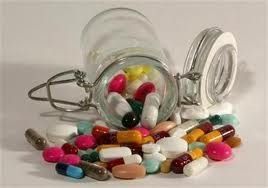Obama Executive Order to Speed Response to Drug Shortages

President Barack Obama will issue an executive on Monday ordering the U.S. Food and Drug Administration (FDA) to take steps to reduce medication shortages, a mounting problem for many pharmacies and hospitals that has put countless patients' lives in danger.
There have been at least 15 deaths within the past 16 months connected to prescription drug shortages -- many of which are life-saving medications -- as well as administering errors. The growing shortage is mainly of injected generic medications used to treat cancer, such as cytarabine and cisplatin, that have become scare due to production shutdowns and manufacturing problems, according to the FDA.
Instructs FDA to Take 3 Actions
After months of escalating shortages, a White House official told The Associated Press that Obama will sign the executive order instructing the FDA to take action in three areas: broadening its reporting of potential drug shortages, fast-tracking the reviews of applications to change production of those medications facing shortages and providing the U.S. Justice Department with more information and instances of price gouging from third-party vendors.
The AP reports the president will also announce his support for legislation that would require prescription drug makers to notify the FDA six months ahead of a potential shortage. Currently, manufacturers are only obligated to inform the agency if medically necessary drugs are being discontinued, while notification of shortages is voluntary.
As several pharmaceutical companies began scaled back on production of essential generic medications, hospitals have been forced to buy from secondary gray suppliers at enormous markups. Meanwhile, surgeries and other life-saving treatments have been delayed for thousands of patients. In one of the worst cases linked to the drug shortages, earlier this year Alabama's public health department reported nine patients died as a result of a bacterial contamination of a batch of liquid nutrition administered through feeding tubes that was hand-mixed because the ready-made liquid was not available.
Gray Market Venders
In a survey conducted over the summer by the Institute for Safe Medication Practices, a patient safety group, just over half of the 549 U.S. hospitals that responded said they had purchased one or more prescription drugs from gray market vendors. Most of the respondents said they have had to rely on these third-party acquisitions since a handful of pharmaceutical companies have stopped manufacturing the required medications.
According to the FDA, only about six manufacturers make a majority of the generic medications of the market. Companies are often discouraged from making those medications -- especially the injected variety -- because it is costly to set up new manufacturing lines and receive FDA approval.
Moreover, the FDA reports those drugs are not particularly profitable.
There have been about 200 drug shortages in 2011, compared to 178 in the entirety of 2010.
The shortages aren't resolving. They're piling up on top of existing ones, Erin Fox, a pharmacist who manages the Drug Information Service, told The AP in September.
Fox added that at least 55 drugs that were on the shortage list before this year are still either scarce or completely unavailable.
Obama Using Executive Order More, When Allowed, to Implement Policy Proposals
The executive order is the latest in Obama's campaign to move on initiatives that do not require congressional approval, part of the administration's attempt to frame him as an effective leader as congressional Republicans block his jobs bill.
Last week, the president issued an executive order to help homeowners refinance at lower mortgage rates, and another to allow college graduates to simplify and lower government student loan payments. On Friday, he signed an executive order aimed at encouraging economic growth by shortening the time it takes to turn federally funded research into commercial products.
© Copyright IBTimes 2024. All rights reserved.





















